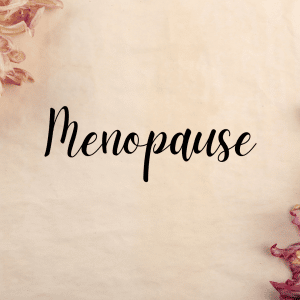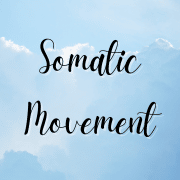Over the course of six blogs we are looking at Menopause. Why? Because so many women go through it, without understanding the changes, and how they can manifest. I was diagnosed with burnout back in 2011. I realise, with hindsight, that menopause was a major contributing factor to my symptoms and mental state. Are you in a similar situation? We can have a much better transition if we have a better understanding of menopause. We can learn to work with our bodies and find our personal path.
In this blog we’re talking about natural ways to deal with menopause vs HRT. We spoke to natural menopause expert Sarah Davison.
What is HRT and Natural Therapy?
How much do you really know about treatment in menopause? It is safe to say that there is a lack of education when it comes to why, when and what different remedies we can use for managing menopause symptoms. Menopause tends to blindside women when it hits because they know very little about it. So what is HRT? HRT (Hormone Replacement Therapy) simply replaces the oestrogen and progesterone that our bodies are no longer producing so much of with synthetic substitutes. It’s best known for managing hot flushes, night sweats and mood swings. There are many forms of HRT such as tablets, skin patches or gel. These can only be prescribed by a doctor.
However, according to the Women’s Health Concern (the patient arm of the British Menopause Society) 95% of women would rather try natural alternatives over taking HRT. Although not risk free, it is most likely because there are fewer risks involved in natural treatment. It could also be that as menopause is a natural process, women like to get through it with natural or alternative medicine. Natural remedies do not replace hormones like HRT does, but instead relieve symptoms by balancing the hormones at their new lower level. Types of natural medicines for managing menopause symptoms include Herbalism, Chinese Medicine, Homeopathy, Ayurveda and Naturopathy.
How do people feel about HRT?
The main concerns women have surrounding HRT are the risks and side effects that could possibly derive from it. Side effects can be anything from migraines to weight gain, thought the newer bio-identical hormones delivered through creams and patches are gentler on the system. It can take a little while to find the right dosage for an individual. How your body reacts to it is important when deciding whether to carry on with the treatment.
When deciding to go down the path of HRT, a GP will take into consideration a persons medical history, such as high blood pressure, blood clots, liver disease and previously having or being at high risk of breast cancer. Although a very rare occurrence, HRT has been linked to women developing breast cancer. Many women are scared off by these risks, but with good professional advice it can be a solution to managing menopause symptoms. HRT is a generalised medication. A single solution for a possible 49 different symptoms. It is not tailored to the individual, meaning that it may help some symptoms and not others.
Are there risks in natural therapy?
Just like HRT, natural medicine can be very hit and miss without professional guidance. While many women opt for natural solutions to manage symptoms, it could take some trial and error to find exactly what it is we need. How many of you have turned to google when looking? Who has self-prescribed evening primrose oil or some herbal remedies? However, what works for one woman may not work for another, and so much trial and error could ultimately end up making symptoms worse or lead to women giving up and turning to HRT. For instance, there are 551 possible homeopathic medicines for hot flushes alone. Finding the right one involves a complex case-taking process by a professional homeopath.
A professional practitioner can help you find the right solution for your symptoms. Sarah offers a deeper look into homeopathy for menopause on her website, which you can access here. https://thrivehomeopathy.com/homeopathy-for-menopause/
Unfortunately I had not met Sarah when I started with my perimenopausal symptoms. I did not try over-the-counter medication. I went to Neal’s Yard in London, and they put together a herbal remedy for me, based on my symptoms. Not quite as tailored as Sarah’s offering, but I was lucky, it helped me manage my hot flushes. And when they came back, following and oophorectomy, I consulted with Sarah who dealt with them homoeopathically.
The importance of the liver in menopause
Another thing we must take into consideration when looking to treat menopausal symptoms is the function and state of our other organs. Menopause symptoms are not always caused by a drop in sex hormones, some can be caused by issues with tired adrenal glands (which produce our stress hormones), a congested liver, a low thyroid or an unhappy gut.
The liver is something that can greatly affect the way our bodies function during menopause. For example, if someone has spent their life not looking after their liver, perhaps consuming too much alcohol and sugar, then it can cause issues such as fatty liver. The liver gets rid of old oestrogen, it’s like the dustbin of the body. If it is not working properly, then it will retain that old oestrogen and exacerbate the hormonal imbalance, making symptoms harder to manage. This is why seeing a professional, perhaps a homeopath like Sarah, is really beneficial towards managing menopause properly.
There are pros and cons to both conventional and alternative treatment, and the different options each one offers. Being educated and informed is vital to making the right decision for our own bodies. We don’t need to suffer!
Thank you to Sarah Davison for the contribution and information. Sarah can be reached at thrivehomeopathy.com.
Sarah offers a free perimenopause assessment that allows you to check how many of the 49 possible symptoms you have. Click here to take the assessment. You do not have to suffer alone! You can also follow her on social media at @naturalmenopauseexpert
Next time we will be looking at menopause from an acupuncturists point of view.
- Taboo and Ignorance
- Menopause and Stress
- Natural VS HRT – Part 2
- Natural VS HRT – Part 3
- Menopause in the Workplace
- The Hidden Gift of Menopause












